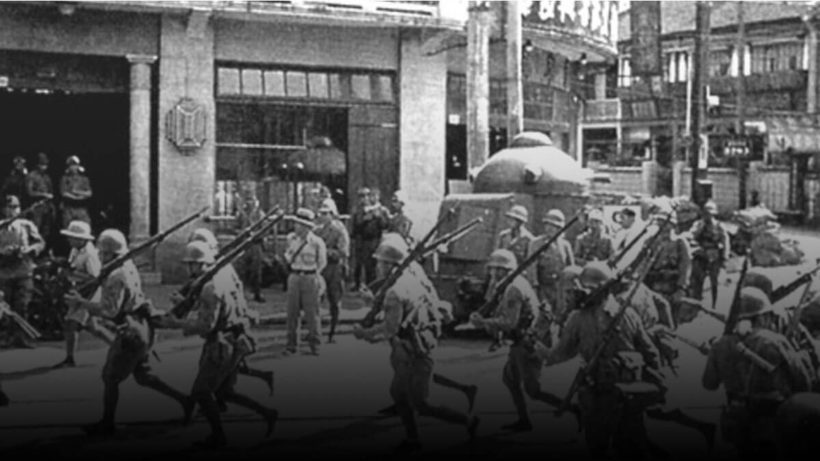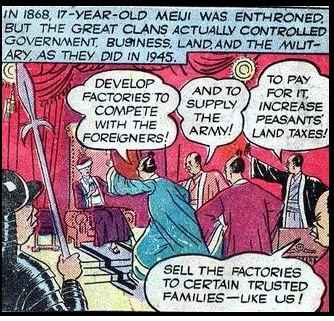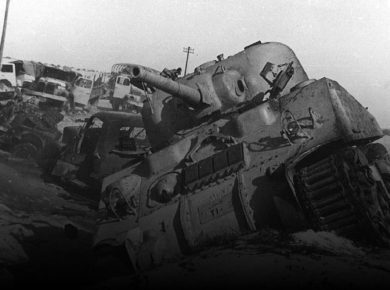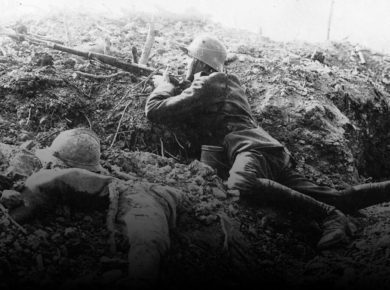Rise of Imperialism in Japan
- Around 1850s, Japanese independence came under threat.
- US sent a naval fleet in 1853 and coerced Japan into opening two ports for US ships and trade was permitted (Gun-boat diplomacy).
- Similar treaties were signed with European powers in coming years.
Meiji Restoration (1868)
Industrialization in Japan
- A political revolution under which feudal-military government was replaced with a new imperial government under the Emperor Meiji.
- From 1868 to 1908, Japan emerged as an industrialized nation.
- Initially, the government took up the responsibility and invested a lot in heavy industries.
- Later, the industries were sold to Capitalists who soon emerged as self-sufficient and no more required government support.
Nationalism enthused Education
- An efficient Education programme ensured that Japanese were made literate very rapidly.
- It provided skilled workforce needed for rapid industrialization.
- Extreme nationalism and worship of Emperor were stressed in the education.
- This enthused people to work hard for national economic growth and also helped in justification of Imperialism that was to happen later.
Absolutism in Japan
- In 1889, a new constitution was enacted.
- The ministers were responsible to the Emperor and not the Diet (Parliament).
- Emperor was referred to as divine.
- The ministers and the Diet had no say in appointment of Army and Navy officers.
- The Diet had limited financial powers.
- The right to vote was given to only 3% of population.
- Thus, gradually the armed forces came to dominate the political affairs of Japan.
Imperialist Japan
Sino-Japan War (1894-95)
This war was fought mainly over Korea, which was hitherto under the control of China. After the loss, China recognized Korea as an independent state (*Japan occupied Korea in 1910). China was forced to pay about $150 million to Japan for war damages.
- Formasa (Taiwan) was occupied by Japan.
- Senkaku islands in South China Sea, which are today a point of contention between China and Japan were annexed by Japan after this war.
- Manchuria came under economic influence of Japan where it made lot of capital investments after 1890s as it was very important due to its high coal and mineral reserves
Russo-Japan War (1904-05)
- It was fought over Manchuria.
- Japan won this war and took over Russian possessions in China.
- Thus, more Chinese territory came under Japan’s control.
- It got privileged position in South Manchuria and also got Port Arthur.
- Japan converted independent Korea into its Protectorate in 1905. Later in 1910 Japan annexed Korea
- Russia ceded half of Sakhalin islands to Japan
Impact of Russo-Japan War
- The win established Japan as a major world power.
- US was against Russian domination in China.
- In Russo- Japan war, US President Roosevelt mediated and persuaded Russia to recognize Japan’s territorial gains.
- US entered into a secret agreement with Japan to allow US trade freely in these areas.
- Thus, US began Policy of Appeasement towards Japan, which boosted Japan’s imperialism and allowed it to become a major power and a US rival in the Pacific.
Japan invasion of Manchuria
Japan invaded Manchuria in 1931 and established the puppet state.From 1931 onward, small localized “incidents” of Japanese aggression against China continued.
- In Manchuria, Chinese companies were trying to replace the Japanese companies & Japanese trade and businesses were at risk.
- This was unbearable in the background of the Economic Crisis of 1929.
- Army invaded Manchuria in 1931 without the government’s knowledge and the Prime Minister was killed in 1932 when he opposed the invasion.
- Till 1945, it was the Army, which ran the country on Fascist lines. The Emperor enjoyed high prestige but he also failed to control the Japanese imperialism because he was afraid of his orders not being followed.
- Thus in Japan, it was the Army and not the elected government, which was responsible for Imperialism in 1930s.
Sino-Japan war (1937-45)
- Japan initiated full-fledged invasion of China
- It became part of the World War II











1 comment
thankyou very much to share the knowledge.